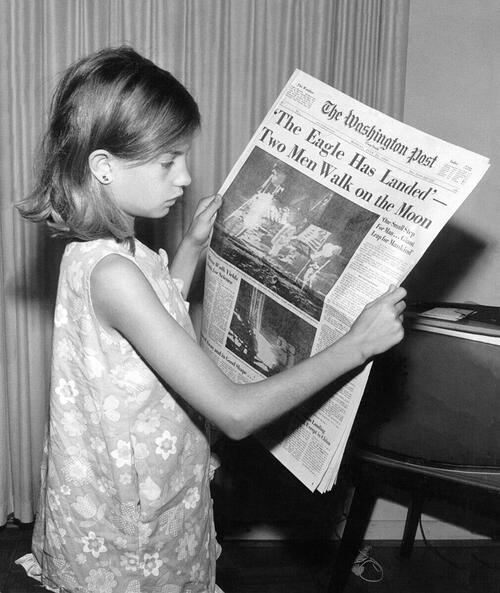
Washington Post writer Maura Judkis is under fire this week for a column in which she mocks shoplifting stories as the “moral panic” of a nation built on “stolen land.”
It is reminiscent of those who excused rioting in past summers “as an expression of power” and demanded that the media refer to looters as “protesters.” Now, the Washington Post is suggesting that it may be just desserts for a nation of colonizers and enslavers.
The prior day, the Post ran another column downplaying accounts of stores closing due to shoplifting even though employees blamed rampant shoplifting in San Francisco.
Judkis wrote a Friday piece entitled “The zombie CVS, a late-capitalism horror story.” The hook was another store being looted in D.C. Judkis matter-of-factly describes how
“Everything else that remains in the store in Northwest D.C., which is not much, is under plexiglass: Dawn dish soap, L’Oreal shampoo, MiraLax, a handful of Clairol root touch-up hair dye kits, flu season combo packs of DayQuil and NyQuil. The diapers are behind the counter. The Cetaphil and Neutrogena face washes are under lock and key. Other shelves, stretching entire aisles, are totally empty. “
The reason for those extreme measures is brushed over. Instead, Judkis uses the story to mock such coverage as “a horror story of Late Capitalism” in which “the empty CVS had somehow become a stand-in for all that is wrong with American cities — and liberals (and liberal democracy?) — in 2024.”
She then adds “America is a sticky-fingered nation built on stolen land, and its current moral panic is about shoplifting. It’s not just a worry in Columbia Heights. All over the country, from sea to shining CVS, there are concerns about petty theft.”
She dismisses the shoplifting as a “political talking point” despite many stories citing such crimes as the reason for closing stories in various cities.
She questions the real basis for such moves and claims that “in certain conservative circles, there’s a wild narrative about cities as terrifying hellholes of crime, theft and lawlessness. The bleakness of the D.C. CVS played right into this belief.”
The real story, she suggests, are the economic conditions leading to shoplifting.
Other journalists have made similar objections. New York Times writer (and now Howard University Journalism Professor) Nikole Hannah-Jones, has called upon journalists stop covering shoplifting crimes, even criticizing MSNBC’s Al Sharpton for his discussion of a viral video of a man who recently stole steaks from a New York City Trader Joe’s.
Writers like Hannah-Jones believe that reporters should actively suppress or dismiss stories on such crime to frame public opinion. It is all part of advocacy journalism. You can almost attribute it the denial of reality in “a late-journalism horror story.”
Washington Post writer Maura Judkis is under fire this week for a column in which she mocks shoplifting stories as the “moral panic” of a nation built on “stolen land.”
It is reminiscent of those who excused rioting in past summers “as an expression of power” and demanded that the media refer to looters as “protesters.” Now, the Washington Post is suggesting that it may be just desserts for a nation of colonizers and enslavers.
The prior day, the Post ran another column downplaying accounts of stores closing due to shoplifting even though employees blamed rampant shoplifting in San Francisco.
Judkis wrote a Friday piece entitled “The zombie CVS, a late-capitalism horror story.” The hook was another store being looted in D.C. Judkis matter-of-factly describes how
“Everything else that remains in the store in Northwest D.C., which is not much, is under plexiglass: Dawn dish soap, L’Oreal shampoo, MiraLax, a handful of Clairol root touch-up hair dye kits, flu season combo packs of DayQuil and NyQuil. The diapers are behind the counter. The Cetaphil and Neutrogena face washes are under lock and key. Other shelves, stretching entire aisles, are totally empty. “
The reason for those extreme measures is brushed over. Instead, Judkis uses the story to mock such coverage as “a horror story of Late Capitalism” in which “the empty CVS had somehow become a stand-in for all that is wrong with American cities — and liberals (and liberal democracy?) — in 2024.”
She then adds “America is a sticky-fingered nation built on stolen land, and its current moral panic is about shoplifting. It’s not just a worry in Columbia Heights. All over the country, from sea to shining CVS, there are concerns about petty theft.”
She dismisses the shoplifting as a “political talking point” despite many stories citing such crimes as the reason for closing stories in various cities.
She questions the real basis for such moves and claims that “in certain conservative circles, there’s a wild narrative about cities as terrifying hellholes of crime, theft and lawlessness. The bleakness of the D.C. CVS played right into this belief.”
The real story, she suggests, are the economic conditions leading to shoplifting.
Other journalists have made similar objections. New York Times writer (and now Howard University Journalism Professor) Nikole Hannah-Jones, has called upon journalists stop covering shoplifting crimes, even criticizing MSNBC’s Al Sharpton for his discussion of a viral video of a man who recently stole steaks from a New York City Trader Joe’s.
Writers like Hannah-Jones believe that reporters should actively suppress or dismiss stories on such crime to frame public opinion. It is all part of advocacy journalism. You can almost attribute it the denial of reality in “a late-journalism horror story.”
Loading…





